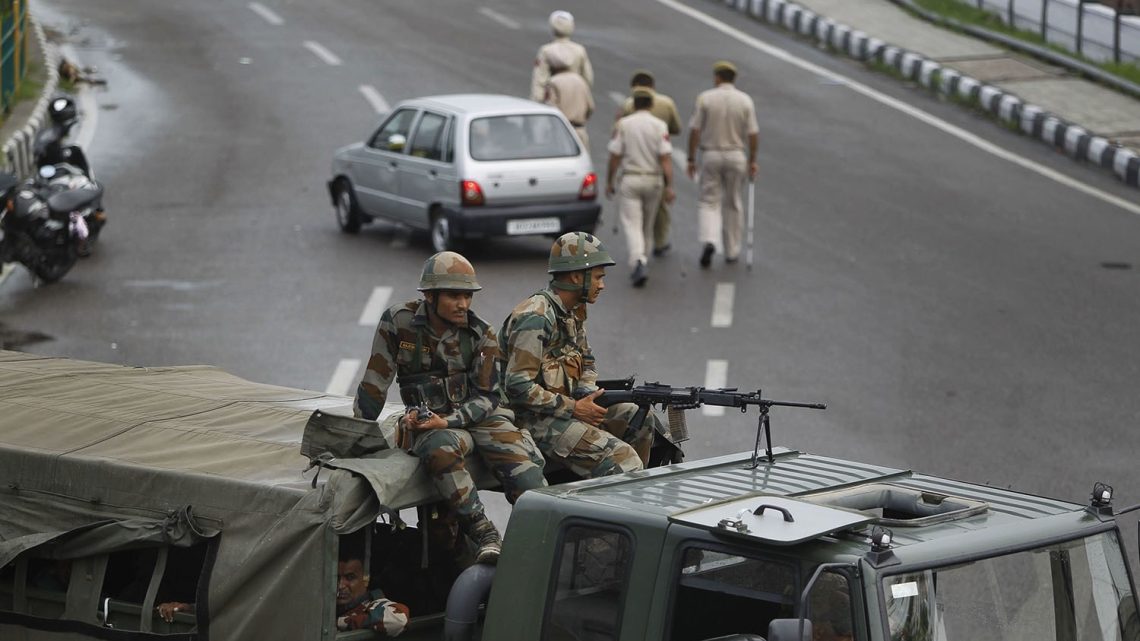
Tensions Rise as Indian Supreme Court Deliberates Article 370 Verdict in Kashmir
December 11, 2023In response to the imminent verdict from the Indian Supreme Court on the abrogation of Article 370, heavy restrictions have been enforced in Indian Illegally Occupied Jammu and Kashmir. The situation has prompted the deployment of Indian troops in significant numbers across Srinagar and other districts to forestall potential anti-India protests.
Scheduled for announcement today, the verdict is anticipated to have far-reaching consequences on the region’s political landscape. The Constitution Bench, led by Chief Justice DY Chandrachud, will deliver its decision on the contentious abrogation of Article 370 by the Indian government, a move that transpired on August 5, 2019.
As the region braces for the outcome, major cities and towns in the Kashmir valley, along with parts of the Jammu region, are witnessing a surge in security measures. Excessive checkpoints and roadblocks have been strategically placed, intensifying the already heightened state of vigilance. The visible presence of bulletproof mobile bunker vehicles underscores the severity of the security arrangements, signifying the authorities’ preparedness to maintain order.
Furthermore, sophisticated CCTV surveillance has been bolstered, adding an extra layer of monitoring to the already tense environment. This move aims not only to track potential disturbances but also to deter any attempts at mass mobilization or protests against the impending verdict.
The implications of the Article 370 abrogation have been a longstanding source of tension and conflict in the region. The legal challenge has brought the matter to the forefront once again, with the Supreme Court’s decision poised to influence the trajectory of the Kashmir issue.
The heavy restrictions and security measures suggest a proactive approach by the Indian government to manage the fallout of the verdict. The deployment of troops and the visible fortification of key locations underscore the gravity of the situation, reflecting a commitment to prevent any potential unrest that may arise in the aftermath of the court’s pronouncement.
While the decision to abrogate Article 370 was a contentious move by the Indian government, the legal scrutiny by the Supreme Court adds another layer of complexity to the ongoing narrative. The verdict holds the potential to either validate the government’s actions or open the door for reconsideration and potential negotiations.
As the region remains on edge, the international community watches closely, with an understanding that the outcome of this verdict could significantly impact the geopolitical landscape. The heightened security measures and restrictions in Kashmir serve as a reminder of the deep-seated complexities surrounding the region’s political and constitutional dynamics.
To conclude, the heavy restrictions and security measures in occupied Jammu and Kashmir underscore the critical juncture at which the region finds itself. The impending verdict on the abrogation of Article 370 by the Indian Supreme Court has not only heightened tensions but also brought into focus the intricate web of political, legal, and security considerations that define the Kashmir issue. The world awaits the court’s decision, cognizant of the potential ramifications and the need for a delicate and nuanced approach to address the complex challenges in the region.

